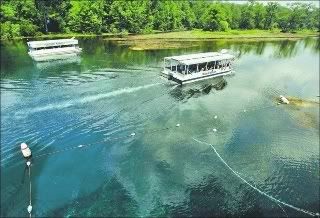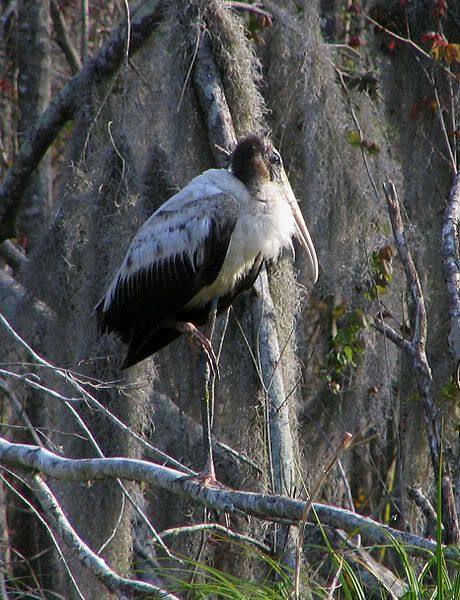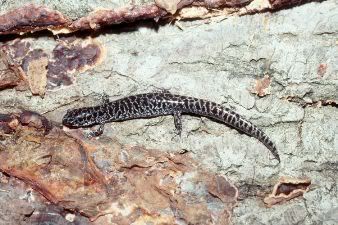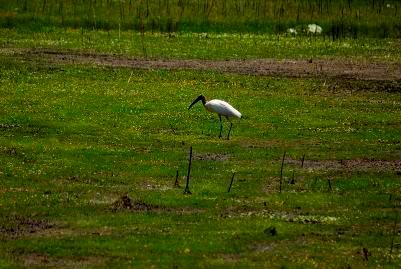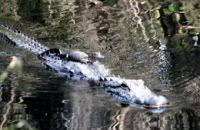
See the end of this post for more info and ways to take action.
Working together to make Wakulla spring back
By Jennifer Portman
Tallahassee Democrat
WAKULLA SPRINGS STATE PARK ‑ The limpkins haven’t returned yet, but their beloved apple snails, seeded by scientists to lure back the park’s departed signature bird, are multiplying.
The slimy hydrilla still has a grip on the swimming area, but the native eel grass biologists have planted is taking hold.
And while the quality of the water coursing out of the main vent hasn’t changed much, plans to reduce the amount of polluted runoff reaching the spring remain on track.
Wakulla Spring - the park’s centerpiece and one of the largest, deepest and most studied springs in the world - isn’t in the clear yet, experts say. But there are positive signs that recent attention to the threats it faces from development and poor stewardship is making a difference.
“I look at this as our Everglades,” said Charles Pattison, president of 1000 Friends of Florida.
Now, advocates say, it’s time to keep pushing forward. On Feb. 25, scientists, planners, politicians and regular citizens will get together for a two-day conference to hear the latest scientific findings about the spring, learn about continuing efforts to improve its health and set goals for the future.
Out of the discussion, organizers hope to come up with an action plan and get a general commitment from local governments to do what is needed to protect the spring.
“We cannot rest on our laurels,” said Tallahassee City Commissioner Debbie Lightsey, who spearheaded the upcoming workshop, which is being coordinated through Pattison’s environmental group. “If you love the spring, you can’t stop after taking the first step.”
New focus: Septic tanks
A similar workshop was last held about four years ago. Much of the scrutiny at that time was on how Tallahassee's sewage was degrading water quality at the spring. Two years later, the city agreed to make improvements to its wastewater system, including spending $160 million to reduce the amount of nitrate-rich runoff that drains from its south-side spray field and flows underground directly to Wakulla Spring.
High nitrate levels are thought to be bad for springs because the nutrient fuels the growth of invasive plants such as hydrilla and algae. The state's Department of Environmental Protection is considering limiting nitrate levels at all springs to no higher than .35 milligrams per liter. Wakulla Spring's nitrate level has been hanging steady in recent years at .5 milligrams per liter.
Despite some delays related to Tropical Storm Fay, the city's system upgrades are underway. So, this year's conference will focus on the creeping problem of septic tanks.
There are about 20,000 septic tanks in southern Leon and Wakulla counties, the most fragile part of the spring basin. It's a number expected to grow. That troubles those concerned about the health of the spring, because while the volume of wastewater from the city sewer system is greater, the effluent from individual septic tanks contains higher nitrate concentrations.
Brian Katz, researcher with the United States Geological Survey, recently studied the nitrate levels in ground water near septic tanks.
"I was amazed at how much variation there was," said Katz, who will discuss his findings at the workshop. "There are a lot of unknowns yet that need to be addressed."
Springs don't obey boundaries
The workshop also will emphasize the need for local governments to work together to ensure the spring is protected.
"It's a complex problem that needs an inter-governmental approach," Pattison said.
The event will culminate with the signing of an agreement that commits in principle municipalities in the basin to make policy decisions safeguarding the spring.
"Spring protection doesn't stop at the county line," said Lindsay Stevens, Wakulla County's assistant county manager for planning since 2007. "We have a lot of enthusiastic, smart people who have gotten beyond the political boundaries and have really rallied around the issue. I think we are all poised to do something great."
That unified desire to protect the spring has helped foster cooperation between governments, particularly between Wakulla and Leon Counties, said Stevens,.
"We have accomplished a lot, and I think we are going to build on that," she said. "We want to make sure that on both sides of the line we are doing what we need to be doing. We need to be consistent."
Challenging economic times also make it more important than ever for local governments to work together, Lightsey added.
"Regional partnerships are the name of the game right now," she said. "Money is hard to come by for local governments right now, but you can't put everything on hold."
Pattison said politicians have come to recognize the importance of the spring to voters.
"It's a complex problem that needs an inter-governmental approach," he said. "I don't think anybody wants to see the decline of Wakulla Springs happened on their watch."
Public education
Community sensitivity to the problems facing the spring has never been higher, experts say.
"Overall, there is a much greater awareness in the community about what the issues are and how they can get involved," said park manager Brian Fugate.
One-time critics of government stewardship of the spring now have mostly good things to say about restoration efforts.
"Most of the Friends are feeling hopeful," said Jack Leppert, of the citizen's group Friends of Wakulla Springs. "We are beginning to see some improvement."
Leppert said the once-weed choked area in front of his dock down river is clear enough to push a canoe through for the first time in years.
But there is more to do, and organizers of the event are hopeful that members of the public also will take the time to attend the event. Jim Stevenson, coordinator of the Wakulla Springs Basin Working Group, said he's made the scientists promise to speak in layman's terms.
"It has taken 30 years of sloppiness on our part to degrade the spring. It's going to take 30 years of good management practices to restore it," Stevenson said. "Whoever works or lives in the basin has a role to play."
Attend the Wakulla Springshed Restoration Workshop
When: 8 a.m. to 5 p.m. Wednesday, Feb. 25, and 8:30 a.m. to 12:30 p.m. Thursday, Feb. 26.
Where: Tallahassee Antique Car Museum, U.S. Highway 90 and Interstate 10.
Cost: $30. The fee is payable at the door, but organizers are encouraging early registration by going to the Web site here. The fee covers the cost of lunch the first day, snacks and drinks. For more information, contact Dan Pennington at (850) 222-6277, ext. 105.
Check out the Tallahassee Democrat editorial Saving Wakulla Springs: You Can Do Your Part Right Now for suggested ways to take action today.
Click the picture below to visit and support Friends of Wakulla Springs:
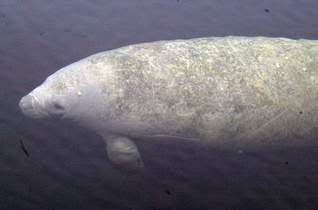
Endangered manatee at Wakulla Springs.
Wildwood Preservation Society is a non-profit 501(c)(4) project of the Advocacy Consortium for the Common Good. Click here to learn more.
